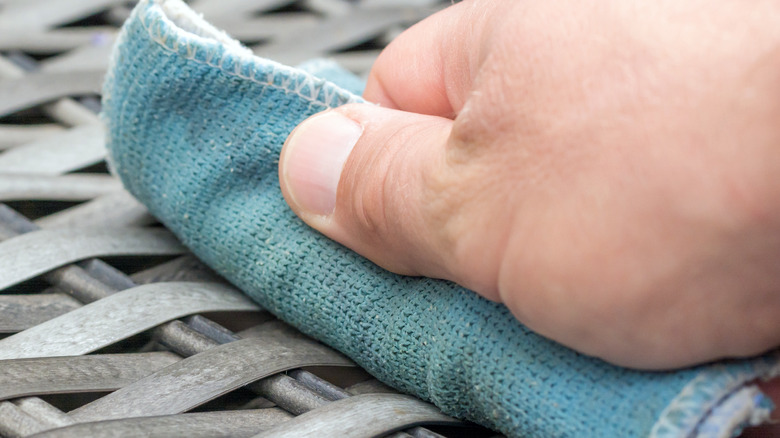Silence Your Squeaky Wicker Furniture With The Help Of WD-40
Wicker chairs can often squeak for a variety of reasons. One common cause is worn-out parts. Over time, screws and bolts can loosen, making chair components rub together and produce a squeaky sound. Lubricating the metal parts can help alleviate this issue. Using a product like WD-40 can assist in resolving this issue.
To silence a squeaky wicker chair, follow a few steps. First, locate the source of the squeak. Sit and shift in the chair to detect the exact location of the noise. Once the problematic spot is found, spray a moderate amount of WD-40 on it. Utilize the straw attachment to reach snug holes. Clean off any surplus WD-40 with a cloth, ensuring the chair doesn't become overly slick, which might lead to slips. Let the chair remain undisturbed for some minutes, enabling the WD-40 to work its magic. Check the chair afterward to see if the squeak has disappeared.
Why WD-40 fixes squeaks so well
WD-40 is an indispensable household solution for addressing household squeaks, proving beneficial for everything from office chairs to wheelchairs. The effectiveness of WD-40 can be attributed to several key characteristics. First, it penetrates tight areas and provides a protective layer that reduces friction and wear. Additionally, WD-40 excels in displacing moisture, subsequently preventing rusting and corrosion, which are frequent causes of squeaks. Furthermore, its versatility allows it to function effectively on various materials, including metal, plastic, and rubber.
When using WD-40 on a squeaky wicker chair, consider the following guidelines. Instead of spraying directly onto the furniture, apply WD-40 onto a clean cloth to prevent streaks and overuse. Before a full application, test the product on an inconspicuous area, like the underside of the chair, to ensure it won't cause damage. Avoid applying WD-40 to soft items like patio cushions or pillows due to its petroleum base, which can cause lasting damage.
Always use the product in a well-ventilated area to minimize inhalation risks. WD-40 can also act as a protective agent against rust and corrosion for patio furniture. In essence, cautious application and adherence to these steps maximize the benefits of WD-40 for wicker chairs.

